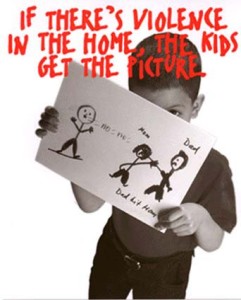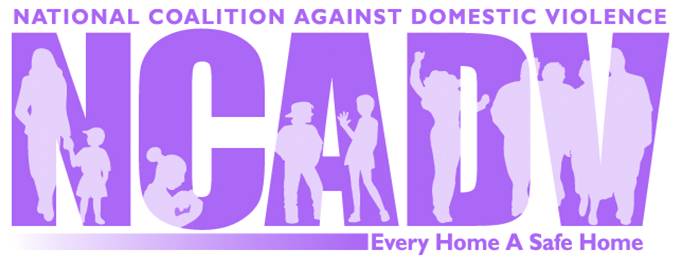 “We must help the victims of domestic violence look into the mirror and name this problem so they can begin receiving help. Education is the key in the class rooms across the nation, to discuss domestic violence and date rape, train our family counselors and therapists, and others who are not knowledgeable with the battered woman syndrome, to recognize the signs. As a society, we must address our lawmakers and those in power to take action and realize this is a serious and deadly issue.” — Dr. Gayle J. Hall
“We must help the victims of domestic violence look into the mirror and name this problem so they can begin receiving help. Education is the key in the class rooms across the nation, to discuss domestic violence and date rape, train our family counselors and therapists, and others who are not knowledgeable with the battered woman syndrome, to recognize the signs. As a society, we must address our lawmakers and those in power to take action and realize this is a serious and deadly issue.” — Dr. Gayle J. Hall
Time and time again, I have heard a battered woman say she knows something is wrong with her or with the relationship, but she does not know what it is. She does not know why she gets slapped or screamed at because she thinks she is a good wife. This same woman then proceeds to rationalize and justify her husband's actions for his anger and rage. After all is said and done, she is worried about getting home on time and what he may think of her if she is late. I was that same woman. I consider myself to be smart, yet I had no clue that domestic violence could ever happen to me…not to me.
What can we do to prevent domestic violence? I have a brilliant idea and plan. This must be implemented before abuse is ever triggered. The following is my five-step-plan.
1). Go into schools, as young as elementary age, up through high school and into the universities. Have age-appropriate literature, such as brochures, available to pass out, as well as refrigerator magnets, for all to take with them after the 30-minute presentation on what domestic violence and “date rape” is. Again, the discussion and presentation would be catered for the age of the audience. Allow time for questions at the end. When I gave a presentation to a group of 65 women and men at a local college, half of them in the room stood up and wanted to tell their story of being in a domestic violent relationship. They just needed empowered to do so.
2). Hold community fairs and free public events. Invite churches to set up booths, invite the local battered women's shelters to set up tables with their literature, invite women's organizations to participate, and call this a “Day of Learning and Loving” or whatever. Just get the public involved and get the information out there about preventing domestic violence.
3). Train the counselors, therapists, life coaches, and anyone who may work in treating or guiding the victims of domestic violence. I can only speak for the local Dallas/Ft. Worth, Texas, area providers, as well as providers in two other states, and I must say that those affiliated with agencies who provide care for abused victims, or those who are experts in the field, such as myself, are the ones who can provide the proper guidance. Victims and survivors of domestic violence have indicated they often feel misunderstood by their therapists when they seek help. This happens when one seeks out an untrained life coach, counselor, or therapist who does not know the dynamics of domestic violence. Research has indicated many therapists and counselors in family practice have not received proper training suitable for helping guide the victim in a domestic violent relationship. Training is critical. A family therapist more than likely does not have proper training and neither do many marriage and family counselors, according to research and LMFT own self-reports. The best help and guidance for a victim of domestic violence is one who is a professional or expert in that field and not one who does it part time, or acts like they understand it.
One word of caution here, please. Marriage counseling can cause more damage and harm to the victim of domestic violence, than good. Never under any certain terms should a couple seek marriage or family counseling when there is domestic violence in the home. Only properly trained life coaches, therapists, or counselors with domestic violence knowledge and education should be working with the victim.
4). Train the law enforcement officials and 911 operators. This may sound senseless; however, you may be surprised at the differences in response rates right here in this Metroplex region. There needs to be a universal response system in place for handling domestic violence calls, instead of taking it lightly and assuming that the call is just a husband and wife yelling at each other and everything is no big deal. When will people understand that domestic violence is the number one killer of women between the ages of 15 to 44 years of age?
5). Contact the local and national organizations for domestic violence and ask what you can do to help. In Texas, this is; The Texas Council on Family Violence (TCFV) and at the national level; National Coalition Against Domestic Violence (NCADV). You can also do volunteer work at a local battered women's shelters. They are always looking for volunteer services.
Hopefully, this five-step-plan provided you with some information to take action in creating a program and strategy to implement prevention of domestic violence and raise awareness. Please help us educate others about this very important issue. I hope you have benefited and enjoyed reading this six-part-series of articles on domestic violence.
Please read articles one through five in this six-part series on domestic violence. The sixth article concludes this series, but don't you worry…there will be more articles in the month of September, plus, an upcoming book jam-packed with guidance, stories, and love about how to shine your way out from hiding behind the shame of domestic violence. You will not want to miss out!
©Copyright — Gayle Joplin Hall, PhD. All rights reserved worldwide. None of this material may be downloaded or reproduced without written permission from the author.















It may frighten you to hear the facts, but domestic violence can be a killer. In fact, it is. That is why prevention and spreading the word through education is so important.
Children learn and repeat the actions they see and hear. We must always be cognizant of this. If you think your ten-year-old does not know what is going on in an abusive home, you are wrong.
For professionals in this field, just because they say they understand domestic violence does not mean they do. When I interviewed counselors and therapists who worked only at battered women’s shelters, they informed me that they had counselor friends not in the same line of interest who did not even know what domestic violence really was. These friends/counselors were in family therapy practice. When someone came to them as a couple, they immediately referred them out, because they knew that marriage counseling is the worse scenario for a victim of domestic violence.
Training and education are the key to helping victims become survivors.
I hope you have learned from reading my six-part series on domestic violence (the rest of the articles are posted here also on my blog).
Please feel free to leave your comments. I appreciate you sharing with others!
Shining my love into your world, Dr. Gayle J. Hall
You have brought up a very excellent details , regards for the post. “For visions come not to polluted eyes.” by Mary Howitt.